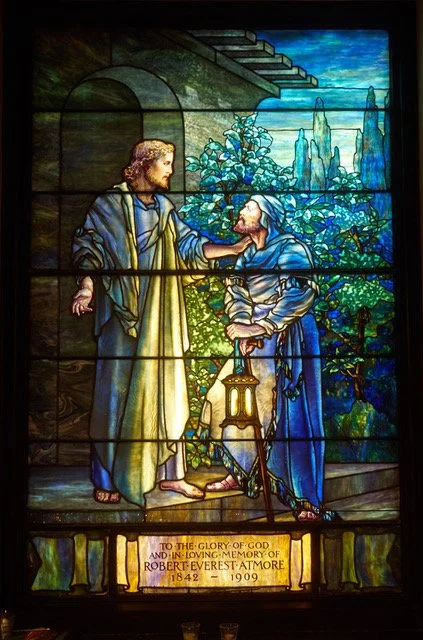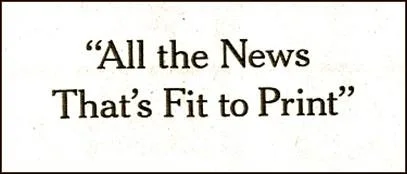Friday Reflection Part II: A forgotten hero of the anti-Catholic Southwark riots of 1844–St. Stephen’s rector Rev. Henry William Ducachet
Portrait of Dr. Ducachet
As we celebrate exemplary champions of social justice around the world, I call attention to a seemingly unlikely one in our very own neighborhood, St. Stephen’s second rector, Rev. Henry William Ducachet. He’s most often touted as a cultivated, affable physician-turned-clergyman who socialized with the parish wealthy such as Edward Shippen and Eliza Howard Burd. At his funeral in 1866, however, The Rev. Ferdinand Ewer’s memorial sermon brought up an incident that I’ve found nowhere else—even in the burgeoning literature on the general event, Philadelphia’s infamous nativist riots of 1844. Rev. Ewer identified its source as a testimonial at Dr. Ducachet’s death by an unnamed “Romanist” who claimed this Episcopal rector was “respected and beloved” as one of their own, for his courage and protection in the midst of anti-Catholic mob violence.
Counting among the bloodiest episodes in the region before the Civil War, and similarly leaving sustained bitterness, Philadelphia’s so-called “nativist” riots were reactions by mostly Protestants against the increasing waves of Irish and German Catholic immigrants. In the spring and summer of 1844, hostilities turned violent from Kensington, in the city’s northeast, down to Southwark.
Facade of St. John the Evangelist, 21 S. 13th St.
The most dramatic focus of the assaults in Southwark was the new Roman Catholic church of St. Philip Neri (218 Queen Street), illustrated above. The testimonial about Dr. Ducachet doesn't give a precise date for the incident it describes, but the story dovetails with events documented in July right around St. Stephen’s (19 S. 10th St), which lies between the more familiar riot zones. According to Rev. Ewer’s source, Dr. Ducachet left St. Stephen’s to forge through an “infuriated mob” first to rescue a key—therefore vulnerable—Roman Catholic neighbor: the Bishop of Philadelphia, The Right Rev. Francis Patrick Kenrick. He lived three blocks away at the new and grand St. John the Evangelist church, the proto-Cathedral of the Roman Catholic Diocese, a church then being defended against mobs by militia sent by the government.
St. Joseph’s Orphan Asylum, 700-02 Spruce Street
Dr. Ducachet and Bishop Kenrick then pressed onward to St. Joseph’s Orphan Asylum blocks to the southeast to persuade the Sisters of Charity who ran it and its young residents to flee with them to safety—at Dr. Ducachet’s home at 8 Girard Ave., well out of the Southwark fray but edging other hot spots north of center city. The anonymous Catholic reporter claimed Dr. Ducachet’s sincere commitment to their safety and “warmth of manner” persuaded all to risk plunging into the violence with a total stranger—a man of God but a Protestant one—to distant sanctuary. The reporter said “We can never forget it.”
Yet many did forget, though described in dramatic language at Dr. Ducachet’s funeral over twenty years later.
Amidst that violent eruption in the rapidly changing City of Brotherly Love, a lone man of the cloth took extraordinary action, at considerable risk to himself, to prevent harm, by hostiles of his Protestant camp, to neighbors of the older Christian church. His protection of potential victims was protest against, not just flight from violence despite the risk. Committed to social welfare in their shared home, they both practiced the Gospel daily. The Sisters of Charity, founded in 1809 by Elizabeth Ann Seton in Baltimore, is known as the first congregation of women religious to minister in Philadelphia (1814). The orphanage that they were sent to run at 700-02 Spruce, founded by Holy Trinity Church for victims of the earlier Yellow Fever plagues, prospered. St. Stephen’s had long provided schooling for the urban poor. Though I don’t know when it began, the small school and asylum for fatherless white girls established near St. Stephen’s by parishioner and patron Eliza Burd grew, at her death in 1860, into a celebrated complex in West Philadelphia owned and run by the church.
Famous for his glib tongue, Dr. Ducachet took very revealing action in crisis. I often think of that choice in 1844 and the violence that coursed so destructively through these streets as I walk them today, now seeming so quiet by comparison but in truth with much to do on a daily basis.
—Suzanne Glover Lindsay, St. Stephen’s historian and curator
About Friday Reflections:
Every Friday, Father Peter and Suzanne Glover Lindsay share written reflections highlighting a particular theme. This week's Friday Reflection explores the Power of the Gospel/The Gospel in Action. Check out Friday Reflection Part I, where Father Peter discuses Oscar Romero and the Martyrs of El Salvador.




